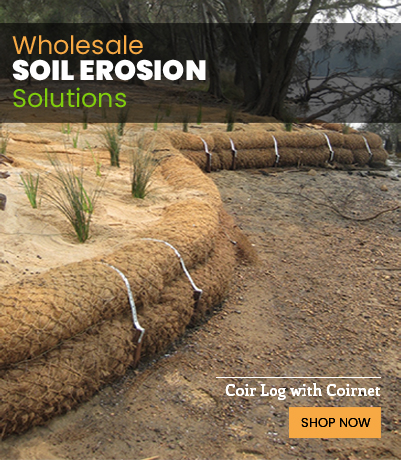Farming mushrooms requires a lot of care and attention, and it isn’t often recommended for beginner gardeners. Mushrooms grow in a substrate and aren’t watered during their growth process. All moisture is added to the substrate before the mushroom grain is added, so it can be challenging to get the balance of water, nutrients, and growth medium correct.
Another difficulty many mushroom growers run into is that many substrates that work well for mushrooms also work well for bacteria, mold, and other fungi that can overtake your mushroom colony. A new substrate on the market, coir, may solve these issues. Coir, which is produced from the fibrous husk of the coconut, is naturally highly resistant to bacteria, pests, and mold, providing an ideal base for your mushrooms as they grow.
Your Mushroom Farm and Coir
When considering coir for your mushroom farm, it’s important to look at the many advantages coir provides over other traditional growth media like peat moss. Coir retains more moisture and is more sustainable than peat moss. As a medium, it’s very forgiving, making it an excellent option for people new to mushroom farming.
Coir comes in easily transportable blocks which need to be rehydrated before use. You should also pasteurize your coir before using it. It’s easy to combine the rehydration and pasteurization step by soaking your coir block in hot water. Some growers also choose to mix their coir in a 1:1 ratio with vermiculite to add structure and further increase water retention. Whether or not you choose to do this is up to you. With high-quality coir, it’s not a necessity.
Many mushrooms need a nitrogen-rich environment, so you’ll likely have to add nitrogen to your coir to make sure your mushroom farm is thriving. Coir has a high cation exchange capacity, so adding nutrients to your substrate is a simple process, and the coir will retain the nutrients throughout the fruiting process.
Benefits of Coir
If you’ve committed to growing your own mushrooms, whether for personal use or for profit, you’re likely invested in the overall health of the world. When you choose to use coir as your mushroom farm substrate, you’re choosing a highly sustainable, non-toxic resource that used to be seen as a waste product.
Coir’s resistance to many of the common plagues mushroom growers experience makes it a relatively low-maintenance substrate with an increased likelihood of successful fruiting. And, because it expands up to ten times its size when hydrated, you’ll be able to get a lot of use out of a single block of coir substrate.
Coir is also biodegradable and often reusable, meaning that you can use the same coir as your mushroom substrate for multiple harvests. If you choose to, you can also add your coir substrate to your compost heap or use it to fertilize your lawn or garden. As it breaks down, it releases essential nutrients that can vastly improve your soil’s overall health.
If you’ve never tried coir as a mushroom farm substrate before, give it a try. You may be surprised at your mushroom yield!

Leave a Reply
You must be logged in to post a comment.